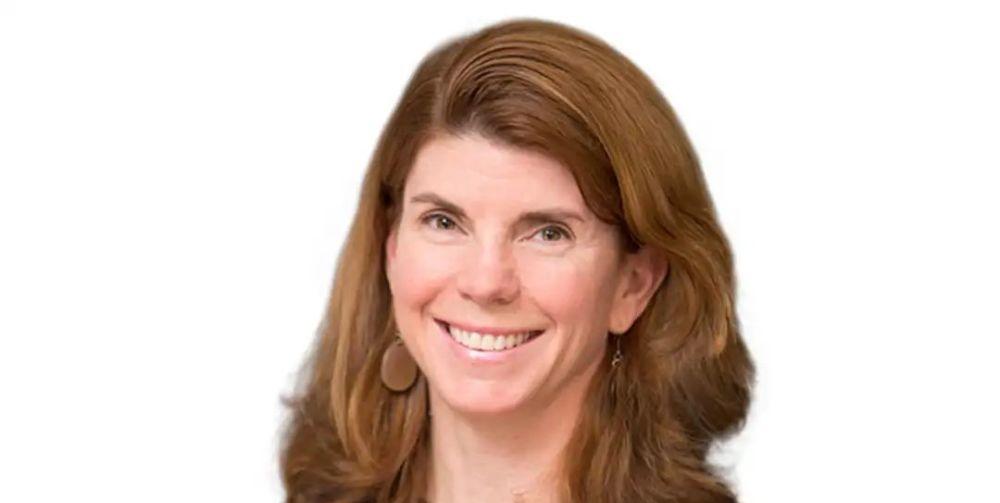Recently, an immune startup called Upstream Bio (hereinafter referred to as "Upstream") posted a list of positions for its translational research leader on LinkedIn, and in the company's introduction, it was seen that the company has raised $200 million led by OrbiMed to develop drugs to treat inflammatory diseases. In a public filing, Sam Truex was named CEO of Upstream.
Last year, a biotech startup found that its target target could not be drugged at all and had to declare bankruptcy. Sam Truex is the CEO of the biotech company called Quench Bio (quench). Quench was founded in 2018 and incubated by venture capital firm Atlas Venture. Focus on the development of oral inhibitors blocking the GSDMD (gasdermin D, a member of the family of key proteins that perform coke death) proteins to treat inflammatory diseases.

Image: Sam Truex (Source: endpoints news)
Quench, which had not yet identified a lead compound when it was founded, raised $50 million in 2020 for various drug discovery tools to find drugs that target GSDMD and to seek progress in an effective, selective family of chemical drugs by the first quarter of 2021. However, it did not succeed in achieving that goal.
To keep the GSDMD project moving forward, Quench auctioned off its research, and the reasons for the technical failure have not been disclosed. Quench said only companies that win the auction have access to specific information about the study and won't make it public until Quench publishes its research.
Upstream, on the other hand, was licensed for a molecule with early clinical data at its inception and is trying to obtain another. It's unclear which company to deal with. The company's board of directors includes Atsushi Sugita, president of Japanese pharmaceutical company Maruho, which owns several dermatological drugs at the clinical stage, and other board members include Ron Renaud, former CEO of Translate Bio, and Srinivas Akkaraju, head of Samsara BioCapital.
This will be Sam Truex's third time as an executive at a company in the field of immunology since he conducted multiple sclerosis research at Bojian. Prior to Quench, she served as CBO of Padlock Therapeutics ("Padlock"), a startup for autoimmune disease research, which was acquired by Bristol-Myers Squibb for $600 million in 2016, earning investors 30x in just two years. Padlock was founded in 2014 and also incubated by venture capital firm Atlas Venture.
At the same time, a company called EoCys Therapeutics (hereinafter referred to as "EoCys"), which is invested by Atlas Venture, will also end the stealth model. According to public information, Atlas Venture registered the company a few weeks after Quench announced its liquidation. At first, Sam Truex was registered as CEO of EoCys, and last December, Andre Turenne, who helped successfully transform the troubled gene therapy biotech Voyager Therapeutics, was named CEO of EoCys.
EoCys is using advances in "ultra-deep proteomics" (a new tool for analyzing how small molecules interact with proteins) and machine learning to develop covalent drugs to treat cancer and immune diseases, in part from Harvard Medical School's Edwaard Chouchani lab.
Covalent drugs are molecules that form irreversible bonds with their targets. Historically, developers have tried to avoid using these molecules for fear that they would have undesirable side effects. But since a few covalent drugs succeeded a decade ago, including AbbVie's blockbuster cancer drug, ibrutinib, researchers have begun to re-recognize the obvious advantages these compounds can bring. Some researchers now believe that the most effective tool for predicting a molecule's effectiveness is actually its dwell time on the target, rather than standard measurements like pharmacokinetics.
"It's been up and down over the years, but it's pretty much been on the rise in recent years," says Derek Lowe, a longtime member of the medicinal chemistry industry, "The name EoCys may come from cystine, the amino acid that most covalent drugs bind to," but he cautions that the human body is so full of cystine that it's hard to design molecules without side effects. EoCys is trying to build drugs that can go into protein-binding pockets.
Resources:
https://endpts.com/scoop-samantha-truex-departs-atlas-to-head-200m-orbimed-backed-immunology-startup/
https://endpts.com/samantha-truexs-quench-bio-calls-it-quits-after-failing-to-solve-the-gasdermin-d-inflammation-puzzle/
-End-
【Past】
"Illumina" in the field of organ chips 丨 large-scale application丨 Expert interpretation
Interview 丨Jiekai Bio丨 Unlock exosome purification chromatography system
Micro-structure workshop 丨 A round of financing of 250 million yuan丨 proposed to build a production base of 10,000 tons
Interview 丨M20 Genomics 丨 "Refuse to be an imitation follower"